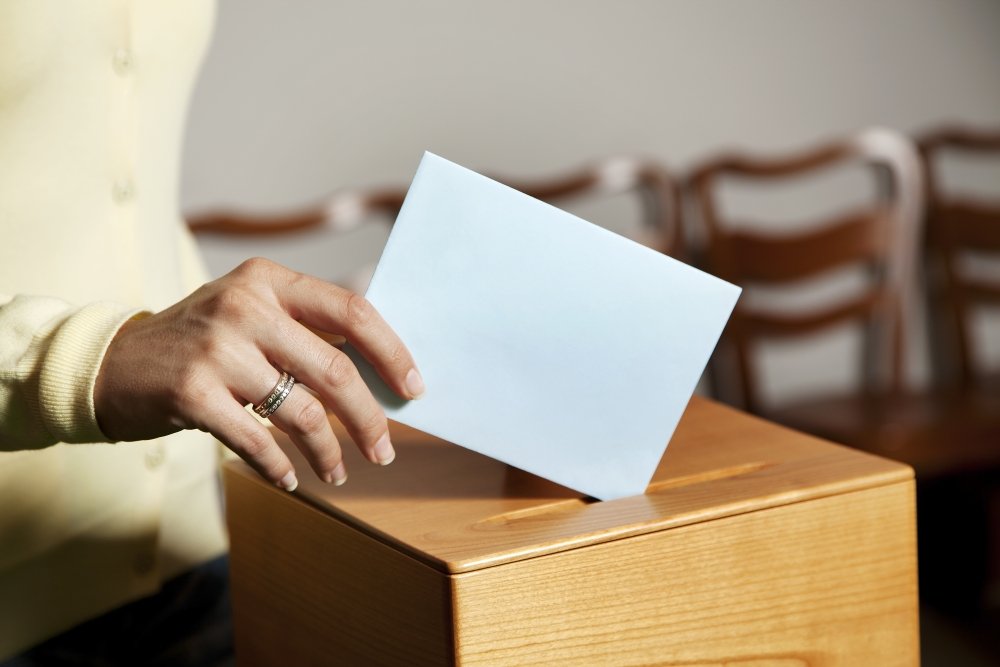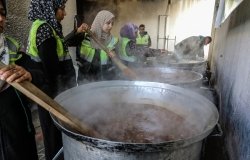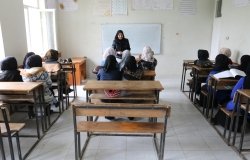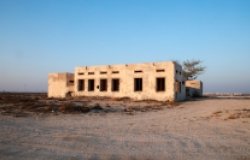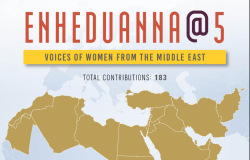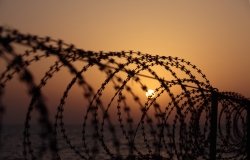
A blog of the Middle East Women's Initiative
To Boycott or Participate? Explaining Women in Iran’s and Turkey’s Recent Elections
Mona Tajali, PhD compares women's participation in recent elections in Turkey and Iran, finding that women decided whether or not to vote based on the strength of the democratic institutions in their respective countries.
Decisions to boycott or participate in elections did not occur in a vacuum but were shaped by the actors’ trust in the strength and integrity of the democratic institutions of their contexts.
On March 1, 2024, Iran held the first round of its parliamentary elections, marking the 12th time since the 1979 revolution that Iranians elected members of the national parliament. Meanwhile, on March 31, 2024, Turkey held its local elections throughout the country’s 81 provinces, electing metropolitan and municipal mayors alongside councilors and other neighborhood representatives.
When it comes to women and electoral politics, Iran and Turkey diverge from one another in fundamental ways, while they also share important similarities. A comparative study of the two countries reveals that, despite the notable backlash against women’s rights and the absence of free and fair elections (though to different degrees) in both countries, large sections of the feminist movement in Iran and Turkey assessed the elections differently in their respective countries.
Considering the institutional structures of their respective contexts, feminists in Iran actively campaigned for a boycott of the elections, declaring them illegitimate, while feminists in Turkey considered the elections as an opportunity to help reverse Turkey’s authoritarian and anti-woman turn.
Boycotting an illegitimate election in Iran
Months ahead of the Iranian elections, notable members of the women’s rights movement, such as the 2023 Nobel Peace Laureate Narges Mohammadi, advocated for a boycott of the electoral process that, by design, sidelines opposition voices, particularly feminist and progressive ones. Extensive campaigns led by women for a boycott of the elections are not new in Iran but have intensified in recent years, including the 2020 parliamentary and the 2021 presidential elections. This time, reformists and other intentionally marginalized groups joined feminist advocates’ calls for boycotting the elections, resulting in a historically low voter turnout of only 40.6%.
With the absence of any meaningful opposition in Iran’s recent elections, conservative-backed women entered the 12th postrevolutionary parliament. Lacking linkages with the women’s rights movement, these women candidates ignored the fundamental cries of the ‘Woman, Life, Freedom’ protests of the past year and half. Instead, the regime-sanctioned candidates, regardless of gender, adhered to conservative religious interpretations that treat women as second-class citizens and, ahead of the elections, campaigned for women’s rights in the context of the family, highlighting women’s domestic duties as opposed to their public roles.
Notably, from the total 16 women incumbents (constituting 5.6% of the 11th parliament), only four were re-elected in this first round of elections, all from the provinces. Women incumbents from Tehran’s multi-member district failed to receive enough votes to maintain their seats, despite support from the dominant conservative faction. In the 12th parliament, women’s numbers are expected to fall below 5%, a rate that is among the lowest in the world. With limited levels of women’s descriptive and substantive representation, feminist advocates consider the Iranian parliament as a weak and illegitimate institution of the theocracy.
Reversing Turkey’s authoritarian turn
In contrast to Iranian feminists, many Turkish feminists viewed the 2024 local elections as an opportunity to deliver a decisive rejection of the increasing authoritarian rule of the conservative religious Justice and Development Party (AKP). In recent years, AKP has been particularly responsible for curtailing women’s rights.
Translating their frustrations into action, feminist groups, such as the non-partisan feminist organization Association for Support of Women Candidates (KA.DER), intensified their efforts and trainings across the country to increase women’s candidacy and representation in the elections. Since its foundation in the late 1990s, KA.DER has sought to increase women’s political roles and influence.
As a KA.DER board member shared with me in late 2023, “Turkey’s local elections are an important opportunity to address key issues related to women’s rights that are failing to be met at the national level.” According to Chairwoman Nuray Karaoğlu, KA.DER began its work in preparation for the local elections two years ago, recruiting and training women who aspired for political office across the country on effective campaigning and messaging, political financing, and collaboration with NGOs and political parties. “A total of 280 women participated in four-day training sessions, in cities such as Istanbul, Ankara, Izmir, Manisa, Mersin, Doğubayazıt, Tunceli, and Gaziantep,” she said.
The grassroots excitement generated around the local elections, in part thanks to women’s efforts, resulted in 78% of the Turkish electorate turning out to vote and delivered the first victory for the opposition in more than three decades. Advocates of women’s rights celebrated the results of the recent elections: tripling the number of women mayors of large provinces from the last round of local elections in 2019, as well as other gains in terms of women’s descriptive representation, particularly across Turkey’s larger cities.
Women’s electoral performance proved that voters have no issues with electing qualified women candidates as highlighted in a statement by the Women’s Equality Platform (EŞİK). As Karaoğlu shared, beyond just increasing women’s numbers in decision-making, feminist groups in Turkey have also been focused on creating sustainable change that enables policy change for vulnerable groups.
Democratic institutions matter
Although they were at different levels of governance, elections in Iran and Turkey had the potential to serve as pathways for change. Decisions to boycott or participate in elections did not occur in a vacuum but were shaped by the actors’ trust in the strength and integrity of the democratic institutions of their contexts.
Indeed, Turkish feminists had more democratic institutions to depend on, such as the country’s highly organized and long-lasting multi-party system, as opposed to their Iranian counterparts.
Having learned from their missteps during the 2023 presidential election, the versatile opposition party in Turkey, the secular People’s Republican Party (CHP), played a central role in presenting a viable alternative to Erdoğan’s rule. They tactfully changed leadership ahead of the 2024 elections and worked hard to reach voters in strongholds of the AKP.
In particular, women’s branches of the CHP worked hard to reach sections of the electorate that rarely voted for the party but were subject to the economic hardships of the past years. As outlined in the EŞİK statement, thanks to women’s effective organizing, voters came to the polls in support of democratic values.
Despite the many challenges facing Turkish politics and economy, institutional structures—including proportional representation electoral system and the ability to choose between many alternative options—energized the feminists to mobilize around the elections.
Iran’s feminists—with the absence of organized party structures coupled with the conservatives’ electoral engineering by filtering candidates ahead of major elections and other undemocratic features of the theocracy—had little faith in the elections delivering change. For this reason, members of the feminist movement of Iran, including those who are currently behind bars, advocated for sustained resistance against the regime.
With the regime’s brutal crackdown on women and girls who defy the conservative hijab laws, feminists such as Mohammadi have called on Iranian women to resist by publicizing all forms of violence, degradation, and humiliation that they face at the hands of the regime and to help feminist advocates and legal scholars in their efforts to pressure the international community on the recognition of gender apartheid as a crime against humanity. Joining forces with women’s rights advocates of Afghanistan, Iranian feminists are hopeful that the legal recognition of gender apartheid will enable women to recognize the Iranian regime as a gross violator of human rights.
Feminists are also preparing the ground for feminist institutions in Iran. For instance, one group, mostly from the diaspora, prepared the Iran Women’s Bill of Rights in 2023, outlining egalitarian demands and institutions to be included in the future constitution of Iran, thereby safeguarding women’s fundamental rights and freedoms. Other efforts include virtual academic debates and discussions on feminist concerns that in effect correct the limited free space that has dominated Iran’s universities in past decades. Such efforts, in addition to awareness raising and education among the Iranian public, will undoubtedly play important roles for eventual radical change in Iran, one in which women are equal players.
As neighboring countries, a greater exchange of feminist ideals between Iran and Turkey could potentially facilitate the adoption of stronger democratic institutions or serve as a deterrent against the threat of democratic backsliding.
The views expressed in this piece are those of the author and do not express the official position of the Wilson Center.
About the Author

Mona Tajali, PhD

Middle East Program
The Wilson Center’s Middle East Program serves as a crucial resource for the policymaking community and beyond, providing analyses and research that helps inform US foreign policymaking, stimulates public debate, and expands knowledge about issues in the wider Middle East and North Africa (MENA) region. Read more

Middle East Women's Initiative
The Middle East Women's Initiative (MEWI) promotes the empowerment of women in the region through an open and inclusive dialogue with women leaders from the Middle East and continuous research. Read more
